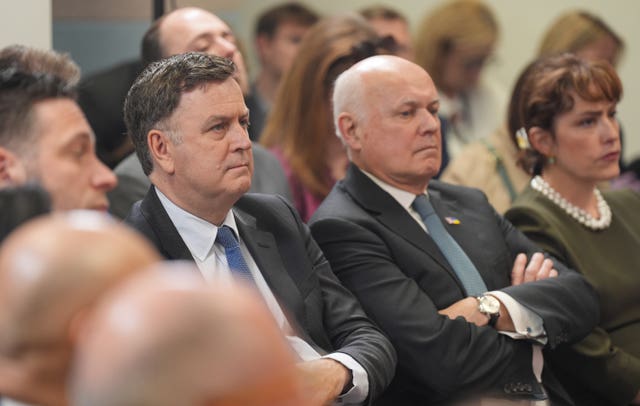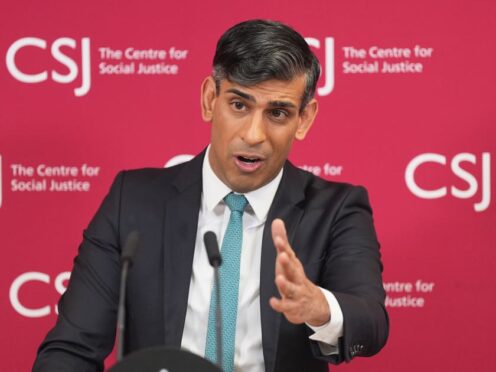Leading mental health and poverty charities and unions have strongly criticised Rishi Sunak’s planned welfare reforms as “deeply damaging” and an “irresponsible war of words”.
The Prime Minister announced a series of major changes to the system on Friday and warned against “over-medicalising the everyday challenges and worries of life”.
Among the proposed changes was a consultation on a “more objective and rigorous approach” in the benefits system, and having so-called specialist work and health professionals charged with responsibility for issuing fit notes instead of GPs in a bid to end the “sick note culture”.
Reacting to the reforms, Dr Sarah Hughes, chief executive of mental health charity Mind, said: “We are deeply disappointed that the Prime Minister’s speech today continues a trend in recent rhetoric which conjures up the image of a ‘mental health culture’ that has ‘gone too far’. This is harmful, inaccurate and contrary to the reality for people up and down the country.
“To imply that it is easy both to be signed-off work and then to access benefits is deeply damaging.
“It is insulting to the 1.9 million people on a waiting list to get mental health support, and to the GPs whose expert judgment is being called into question.”
Centre for Mental Health chief executive Andy Bell also warned Mr Sunak’s suggestion of “over-medicalising” could discourage people from seeking vital support when they need it.
Mr Bell added added the proposed policies would put more people with mental health problems at risk of “benefit sanctions”.
Iain Porter, senior policy adviser at poverty charity the Joseph Rowntree Foundation, said: “This is an irresponsible war of words on people who already aren’t getting enough support, which the Government would rather not talk about.

“Any sensible aspects of the Government’s previously announced planned reforms like a better focus on occupational support have become overshadowed by damaging rhetoric about which illnesses are genuine or not.
“Many people want to work, as the Prime Minister says, but have their hopes dashed by woeful health and wellbeing support and jobcentres unfit for purpose.”
Other reforms announced by the Prime Minister in London included benefits being stopped if someone does not comply with conditions set by a work coach and a pledge to “tighten” the work capability assessment (WCA).
There was also plans for new legislation to prevent “fraudsters” from exploiting “the natural compassion and generosity of the British people”.
The Centre for Social Justice, who hosted Mr Sunak’s speech, said it was pleased to see “a Government that wants to get to grips with surging inactivity”.
But Ash James, director of practice and development at the Chartered Society of Physiotherapy, said Mr Sunak should “look closer to home” and singled out NHS waiting lists as a key issue for welfare.
He said: “Long waits lead to more complex problems and we know that the greater the amount of time someone is off work, the less likely they are ever to return.”
Mr James added: “Employers should also be doing more to make such services available to their staff, given the clear link between productivity and the health of a workforce.
“But until the Government gets on top of NHS waiting times by addressing the serious workforce crisis across a whole range of professions including physiotherapy, too many people will continue to be let down and forced out of work.”
Ruth Wilkinson, head of policy and public affairs at the Institution of Occupational Safety and Health, said plans to use specialist work and health professionals were “vague and unclear”.
She said: “If the Government is serious about addressing the issue of economic inactivity, it’s crucial it prioritises investing in occupational safety and health and identifying and tackling the root causes.
“The main focus needs to be on prevention, ensuring work is safe, healthy and supportive and accommodates people’s needs.”
Jen Clark, Amnesty International UK’s head of economic and social rights, said Mr Sunak’s announcement “demonises some of the most vulnerable people in the country” and was “targeting and humiliating people with disabilities because they need financial assistance”.
